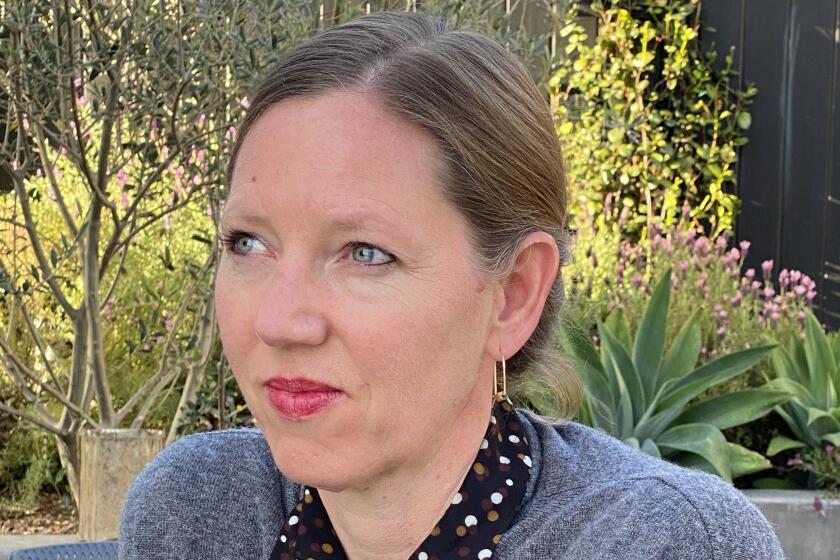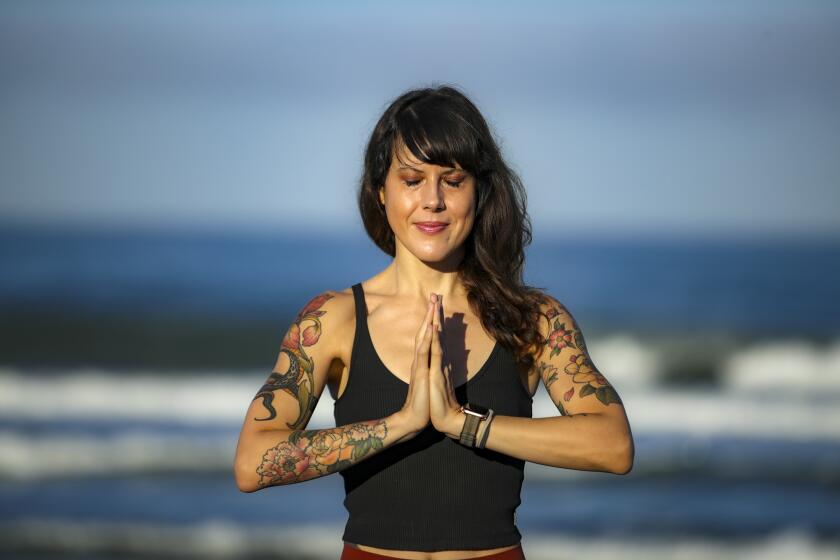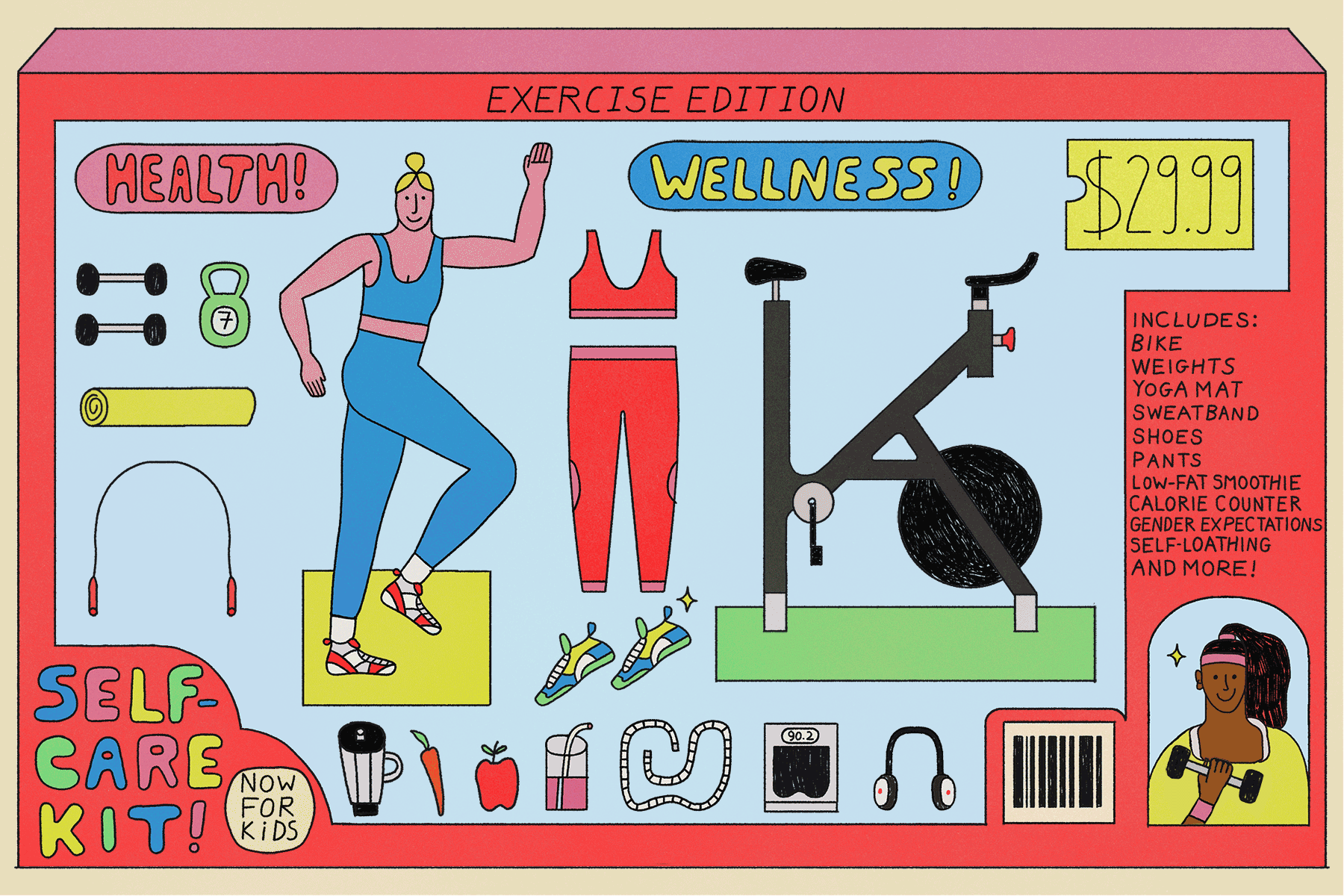An L.A. author probes ‘McMindfulness’ in a deeply unmindful society
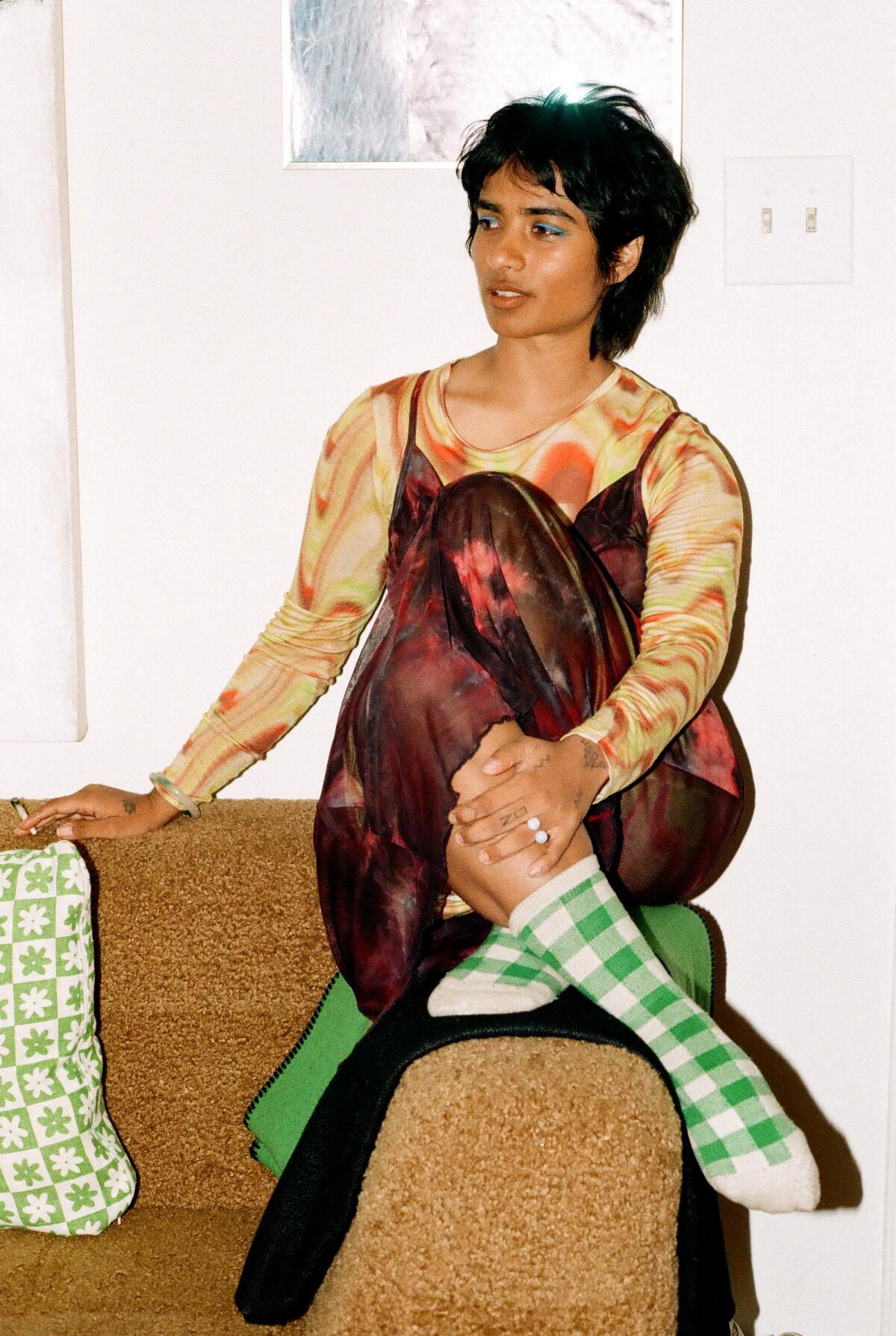
On the Shelf
Who Is Wellness For? An Examination of Wellness Culture and Who It Leaves Behind
By Fariha Róisín
Harper Wave: 320 pages, $27
If you buy books linked on our site, The Times may earn a commission from Bookshop.org, whose fees support independent bookstores.
“I would like to ask people who are invested in ‘wellness,’ how are you living, truthfully?” the writer and activist Fariha Róisín said, speaking from her home in Los Angeles via video chat. Her new book, “Who is Wellness For?,” answers the title question first by showing where these trendy practices are from: a $639 billion industry, inaccessible to most, that co-opts and runs roughshod over ancient healing traditions.
Róisín, a novelist and poet, draws on voluminous research to sweep across the history of yoga and meditation, the very real effects of trauma and stress on the body and even the influence of activists like Malcolm X and Audre Lorde. At the same time, her argument is deeply personal, grounded in Róisín’s experience as an incest survivor and in her South Asian heritage. In the dual illumination of both the history of healing traditions and Róisín’s own work to heal herself, it becomes very clear that if wellness isn’t for everyone, it isn’t for anyone.
For all the darkness and sharpness of her book, Róisín, a fourth-generation Marxist born and raised in Australia, is a glowing, calming presence, with an emphatic poise reminiscent of Angela Davis. In our conversation, she shared her hopes for the message of this book and some revelations about the ongoing pandemic, white supremacy and the radical concept of community care.
Essayists Melissa Febos, Maggie Nelson and Megham Daum made the case for essays and feminism, but disputed the categories, at the Festival of Books.
You work to reattach “wellness” to the notion of collective public health — something our failure to grapple with COVID-19 has brought to the forefront. How did the pandemic shape the book?
I started writing it in 2020. It’s 1,000% reflective of our failures as a society. We’re in a pandemic. We pretend we’re not. We exist in the belief that it’s capital and business as usual, and that those are priorities, and not public health. It’s absurd.
After the murder of George Floyd, there was a sense of real change. People were destroying statues of enslavers. But this obsession to move on and prioritize capitalism is sadistic. I have to question the morality of this country. We’re all free. It’s a farce! This American exceptionalism — this is the reality of how you live?
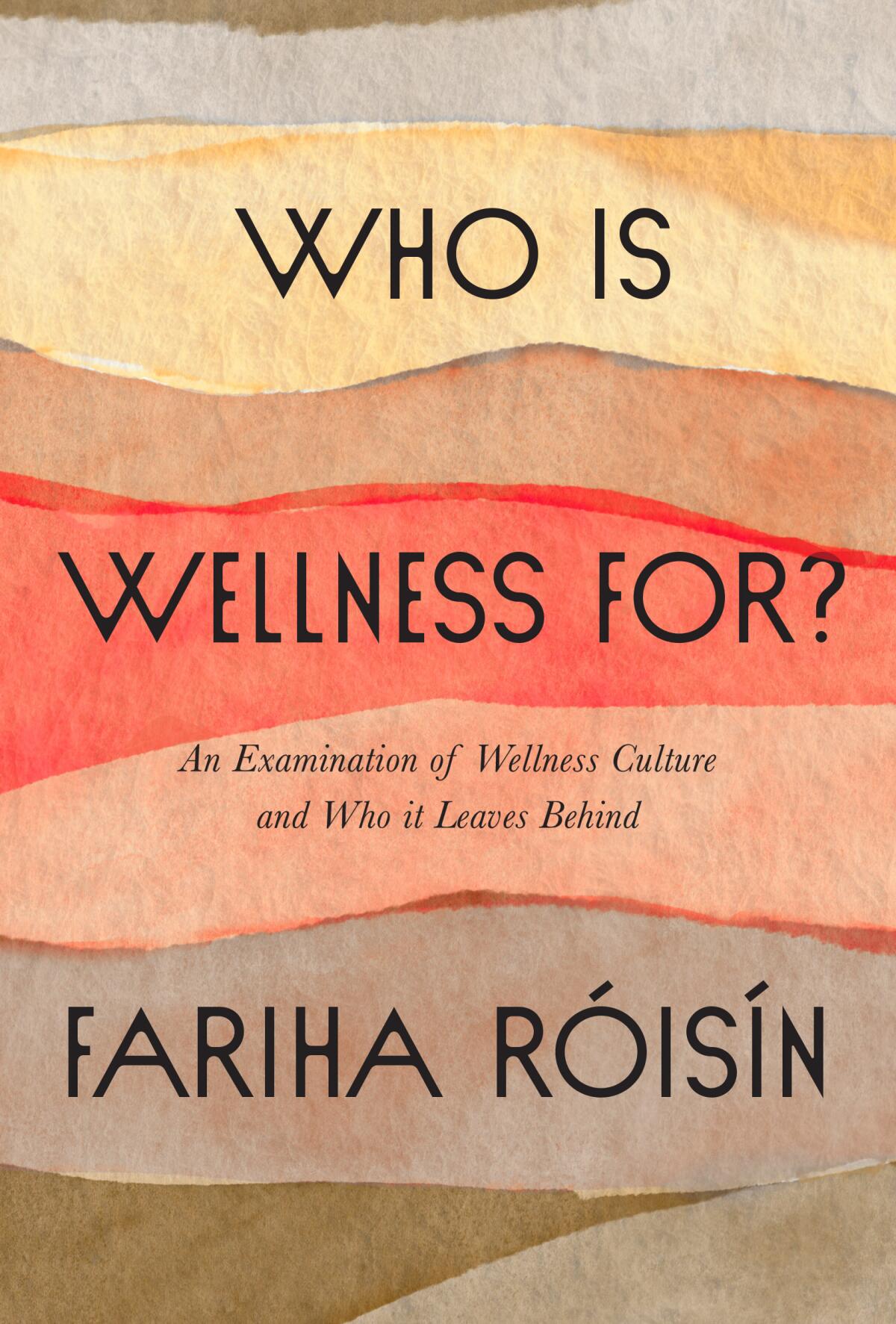
So much of your book is about community care. You write, “Non-Western cultures categorically invested in personal health because they understood that an individual who was well was indicative of a holistically well society.”
Exactly. In Australia, you know that when you enter the hospital, you will be cared for. You know that when you are sick, the government will care for you. So you trust the government because you know you are cared for. This is not the case in America.
I’m just thinking of how this corresponds to American behavior, the refusal to be vaccinated or to wear a mask.
Yes. Americans don’t trust the government, so it’s every man for himself. That individual freedom is really individual fear. It’s not good modeling. If Americans can’t trust they will be cared for by the system, they don’t care for others. Why would they? This lack of care for human life is a sickness, and capitalism feeds into it. Capitalism is not sustainable.
Can you say more about the connection between “wellness” and the environment?
Growth is not sustainable. How are we going to have Wi-Fi if cables are melting from climate change? How are we going to exist if the planet is even 10 degrees hotter? We’re not facing it. The pandemic is just the beginning of a very long, arduous — death remembrance. It’s mother Earth saying, “Oh, this is not working.” Indigenous people know this. Climate scientists know this.
A world that has long embraced love, light and acceptance is now making room for something else: QAnon.
It seems to me that much of the “wellness” industry is about avoiding death.
Yes, the appropriation of ancient healing practices and herbs, like ashwagandha and turmeric, these herbs are coming from Indian farmers and the trade agreements, and the conditions of their labor are horrifying and brutal. And those resources are made into products and sold for God knows how much money. It’s the same concept with “mindfulness,” as I write in the book —
You call it “McMindfulness.”
Yes, these meditation apps and retreats and certifications that cost thousands of dollars, it’s a billion-dollar industry to meditate or do yoga — which is part of the cultural fabric of India, [where] meditation and yoga are accessible to anyone. Wellness is accessible to anyone.
Buddhist meditation is all about being present, which means being present to our mortality. How did it become enmeshed in the U.S. with the opposite impulse — life extension and escapism?
This idea of wellness as a maximizing of one’s life, so much of it is so ableist. You can still be ill and have a full meaningful life. There’s great beauty in any body! I have an adverse reaction to the wellness industry because it’s not about healing, really. It’s never acknowledging that there is a whole variety of humans that have experienced some of the worst things possible. As a society, we’re unwilling to look at the root of things and the history of this country and this nation. It’s a lack of desire to look at the poisonous core.
You share so much about your own trauma in this book. I can’t imagine it was easy to write.
I really like crying and emotions and I don’t shy away from those things, so the book was very cathartic. But writing the last three chapters was excruciating because I really felt it in my body. I had never written this way before; I had written poetry and a novel, but that’s metaphorical. With this book, in Chapter 9, I write: I’m an incest survivor. I almost deleted that sentence. But then I kept it, because vulnerability has really served me when I needed to find community. At first I didn’t have the language for it. So much of healing comes from finding the right language for trauma and putting it into words.
Ferri’s most recent book is “Silent Cities: New York.”
Wellness — a holistic approach to nutrition, fitness, sleep and more — has spurred toys and programs for kids with often questionable benefits.
More to Read
Sign up for our Book Club newsletter
Get the latest news, events and more from the Los Angeles Times Book Club, and help us get L.A. reading and talking.
You may occasionally receive promotional content from the Los Angeles Times.
